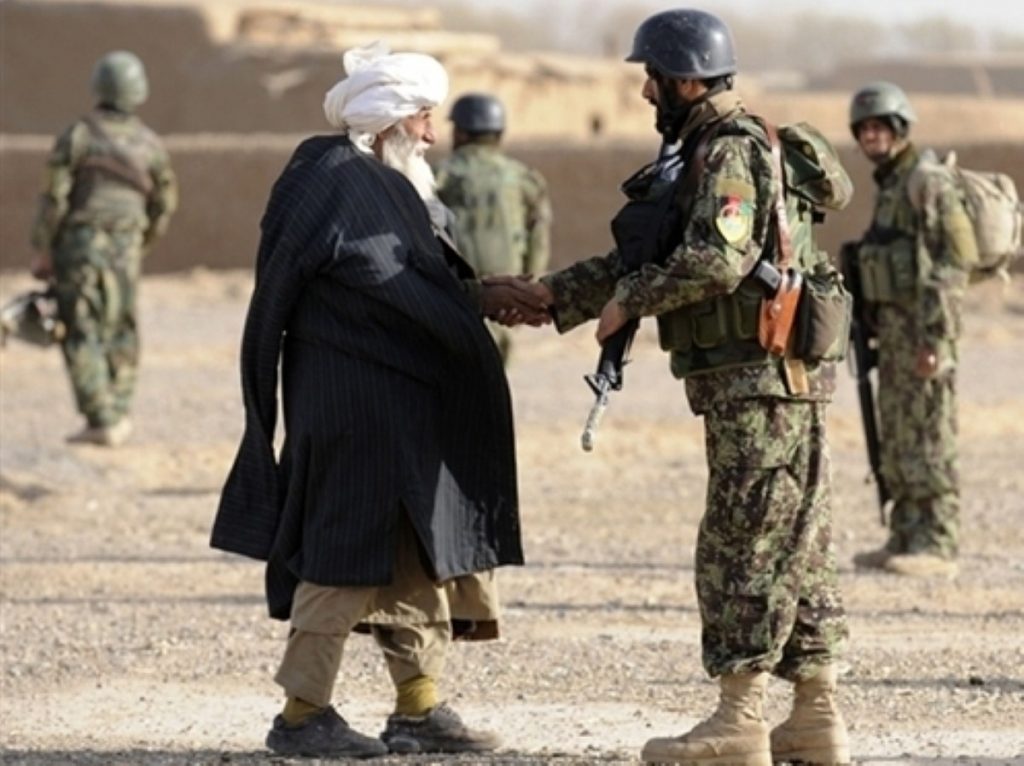Analysis: Do the Afghan leaks change anything?
We should all be shocked by the revelations contained in the tens of thousands of intelligence reports from Afghanistan released today. But their political impact is unlikely to be as damaging as it initially seems.
There’s no doubt the 91,000-plus records released by the Wikileaks website today are deeply troubling. They shine a light on the parts of the war with the Taliban our leaders don’t want us to see. Some parts have been redacted in the public interest. Regardless, the remainder will have a damaging effect on the war effort.
Firstly, Britain’s relations with Pakistan have been undermined. The documents suggest Pakistani authorities knew about a plot to assassinate Afghan president Hamid Karzai – but did nothing about it. More western observers will now start to ask the question: is Pakistan really as reliable an ally as the west thinks it is?


Then comes the ongoing agony about the behaviour of our soldiers. Patriotic fervour, whipped up by the tabloids, is proving politically potent. But it’s mixed with doubts about the military’s inability to restrict itself from apparent human rights abuses. Records release today show British involvement in some of the civilian deaths, caused by international forces, which were never released at the time. Coming soon after the Bloody Sunday inquiry’s final report and with an inquiry into the death of an Iraqi civilian in British custody in Iraq, these worries are not going to go away in a hurry.
Finally comes the propaganda element. These records will boost the Taliban’s attempts to win over local Afghans. We shouldn’t get too panicked here – the vast majority of civilian deaths in Afghanistan are caused by the Taliban, after all – but that won’t stop the hearts and minds of ordinary Afghans wavering as they find themselves stuck between two unfriendly foes.
None of this is good news. Officials, both in American and Britain, are frustrated by the release of the data. It doesn’t change the truth that, in political terms, the news is unlikely to have the effect many MPs fear.
Last year, as the number of dead British troops returning home mounted higher and higher, there was genuine political pressure on ministers. It culminated when Gordon Brown mis-spelt the surname of the relative of a fallen soldier in a handwritten letter in late autumn 2009.
Since then something has changed. First came Barack Obama’s new strategy, a ‘troop surge’ which applies the same counter-insurgency techniques as those used in Iraq. The London conference at the end of January saw international partners adopting a new stress on political progress and winning over wavering Taliban supporters. Afghanistan faded as an election issue as a result. The 2010 general election could have been fought on ‘bring our troops home’. The parties avoided fighting each other on the issue.
Since polling day the new coalition government has come up with its own strategy. The rhetoric now is about timetables for withdrawal – by 2015 at the very latest. Talking about getting out of Afghanistan, rather than seeking to justify why we remain there indefinitely, is proving much easier for politicians. There’s no reason why that won’t change in the coming years.
The result is the diminished impact of today’s terrible news. The Afghan war leaks are depressing, negative and disturbing. On Whitehall, though, ministers know the political awkwardness they’ve caused could be a lot worse.












